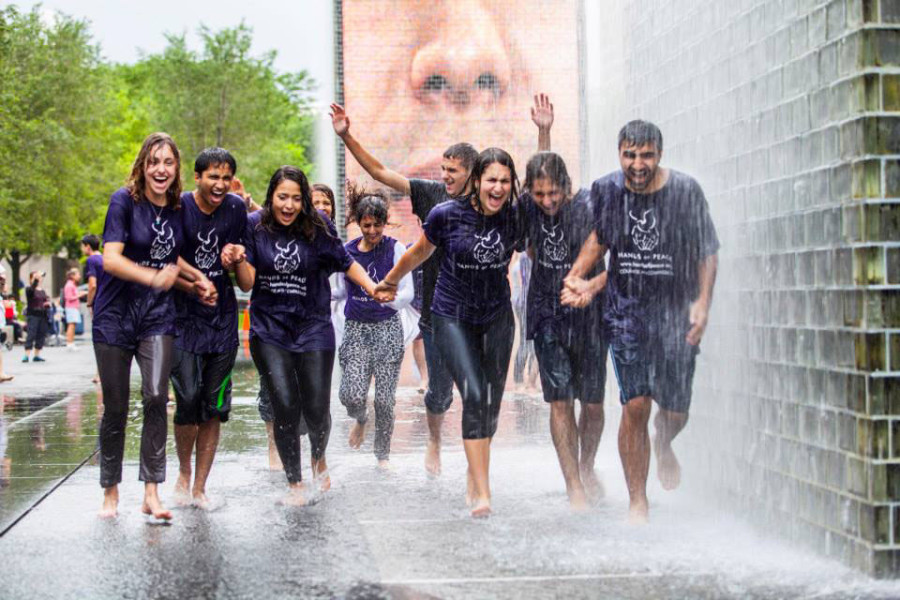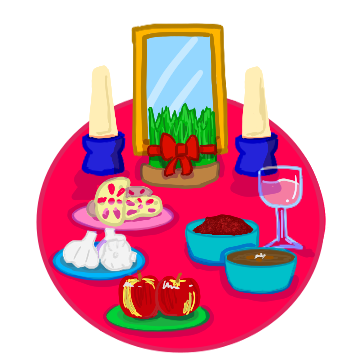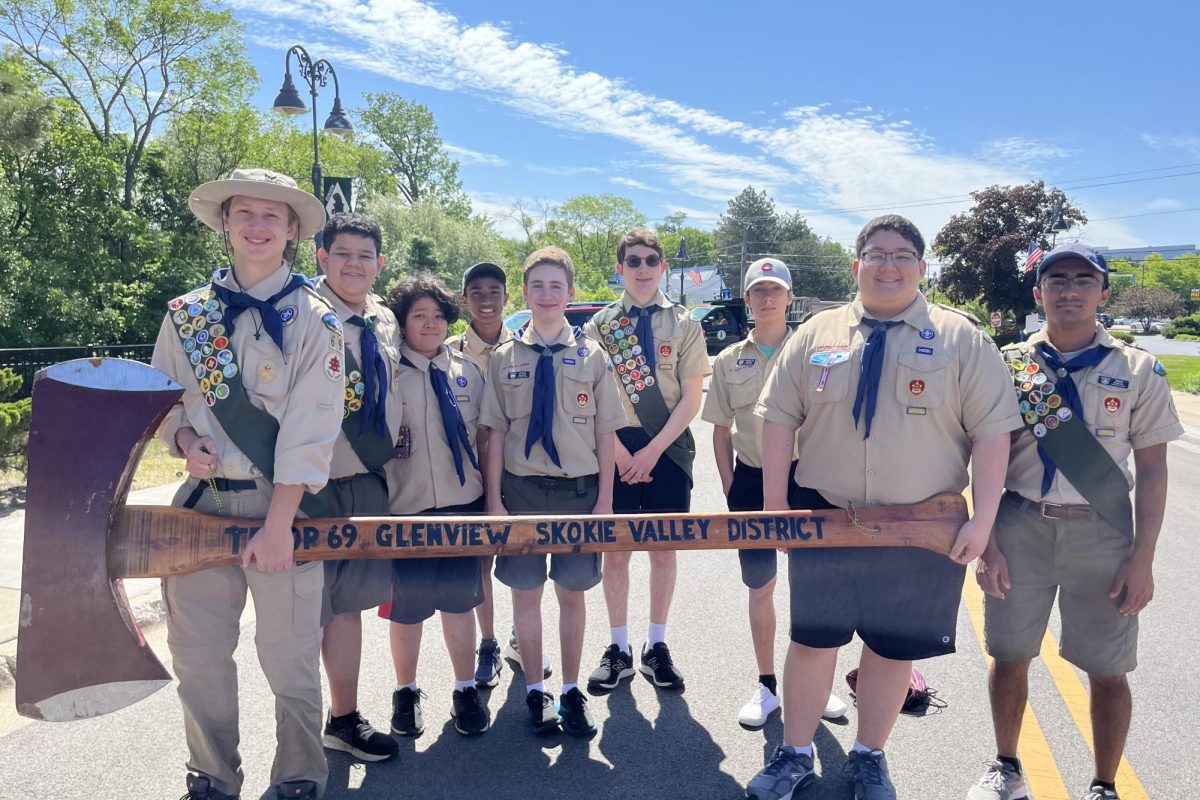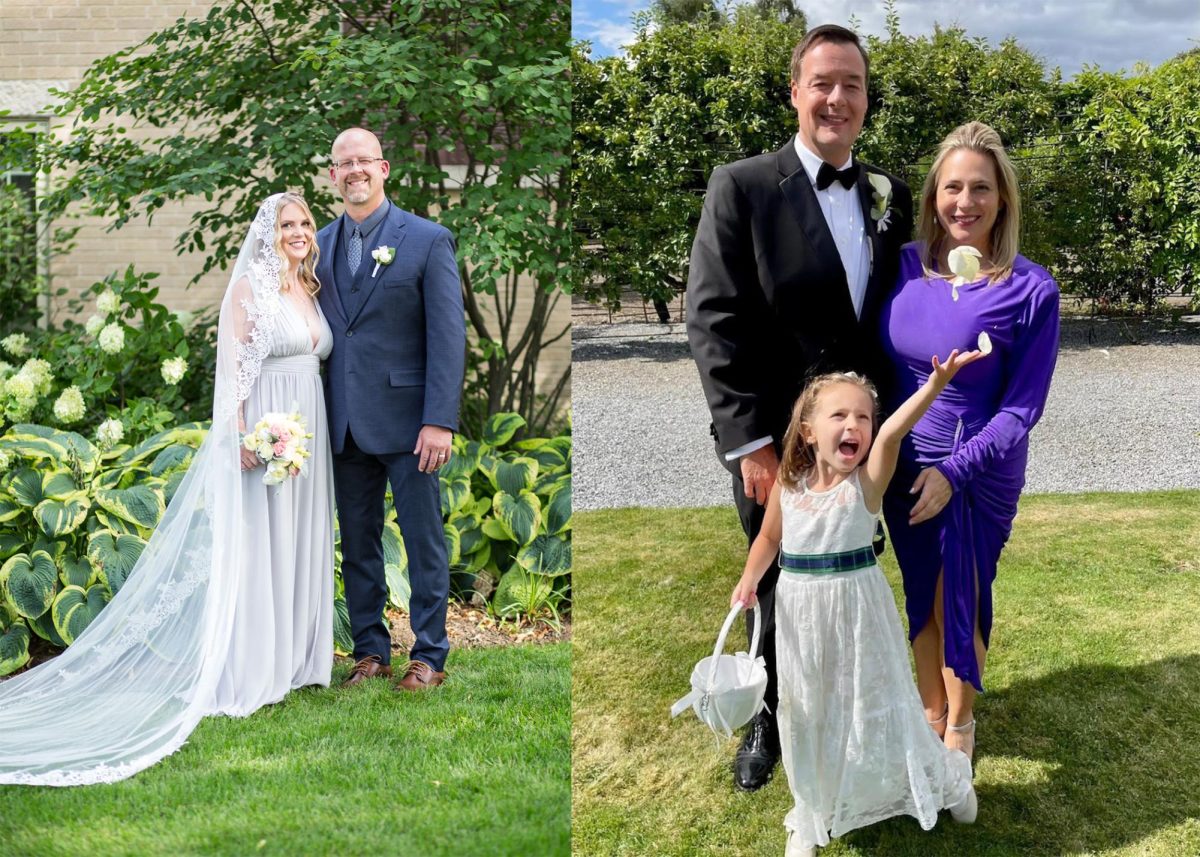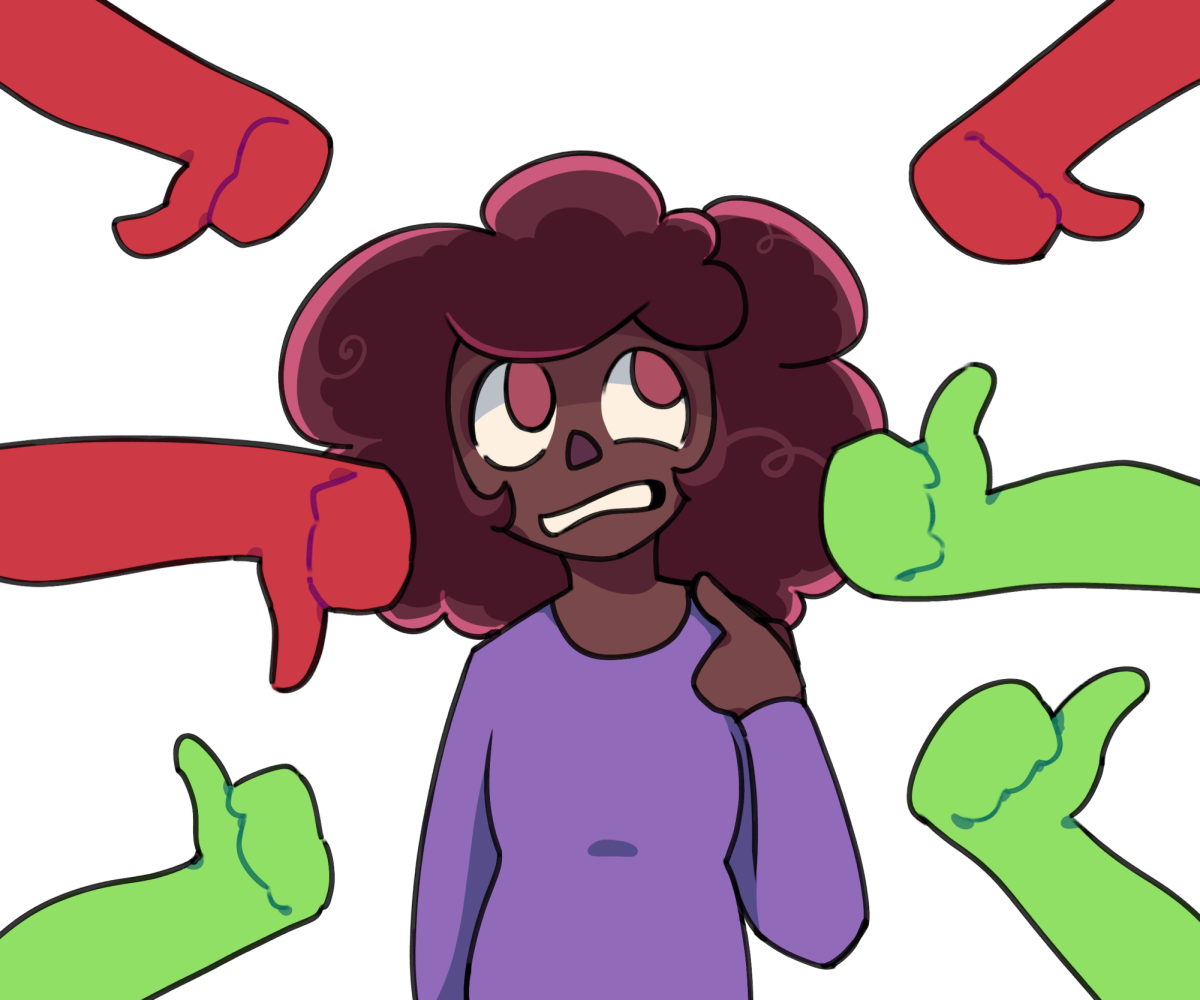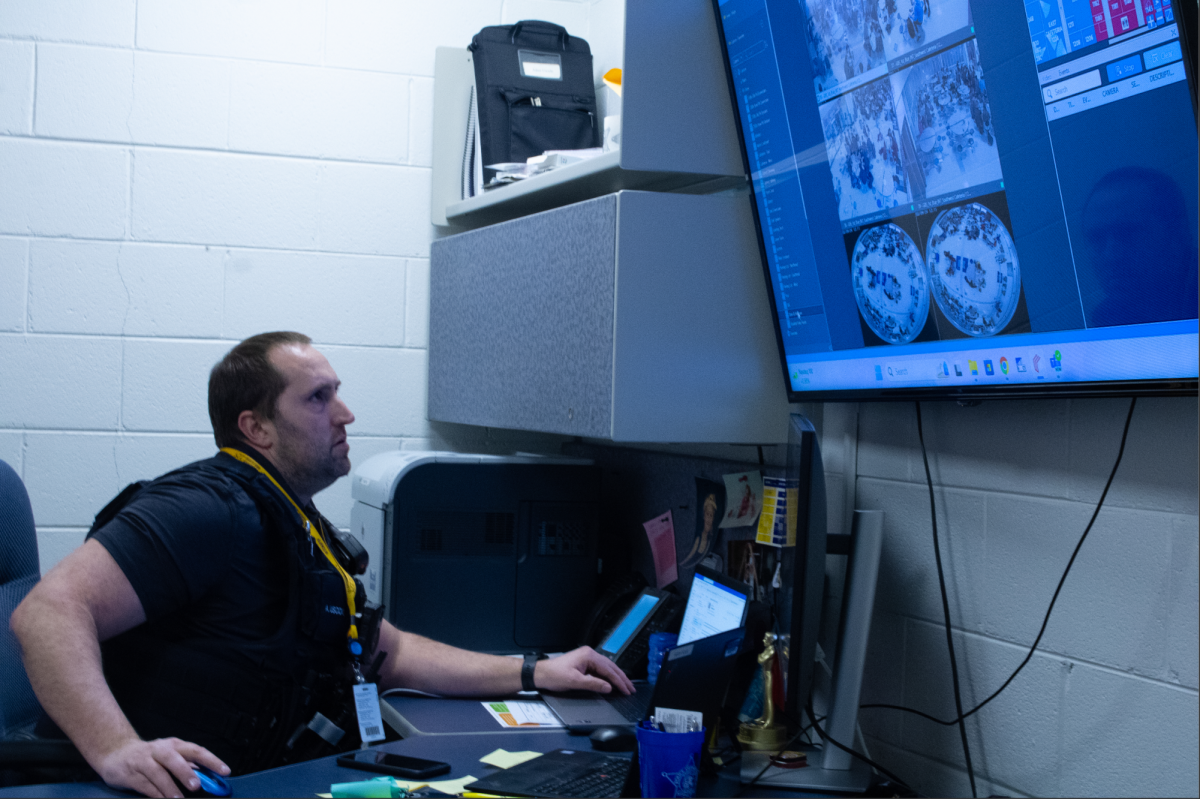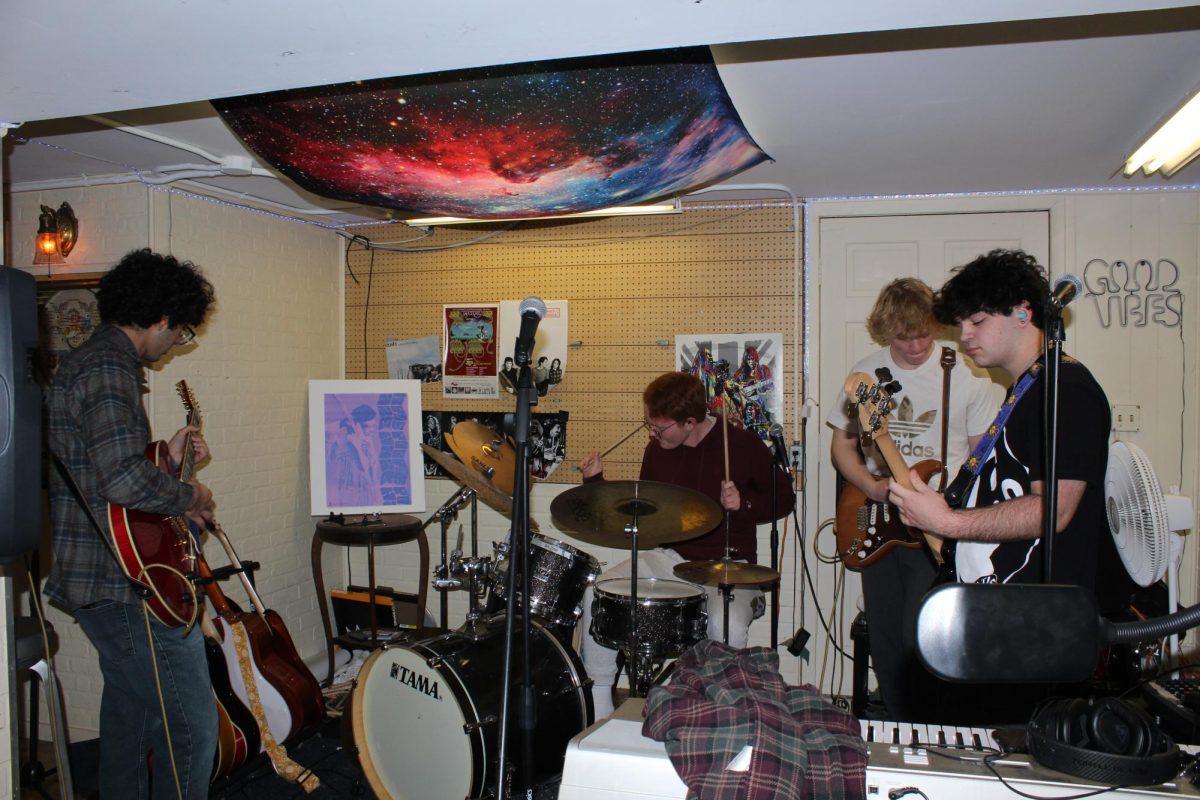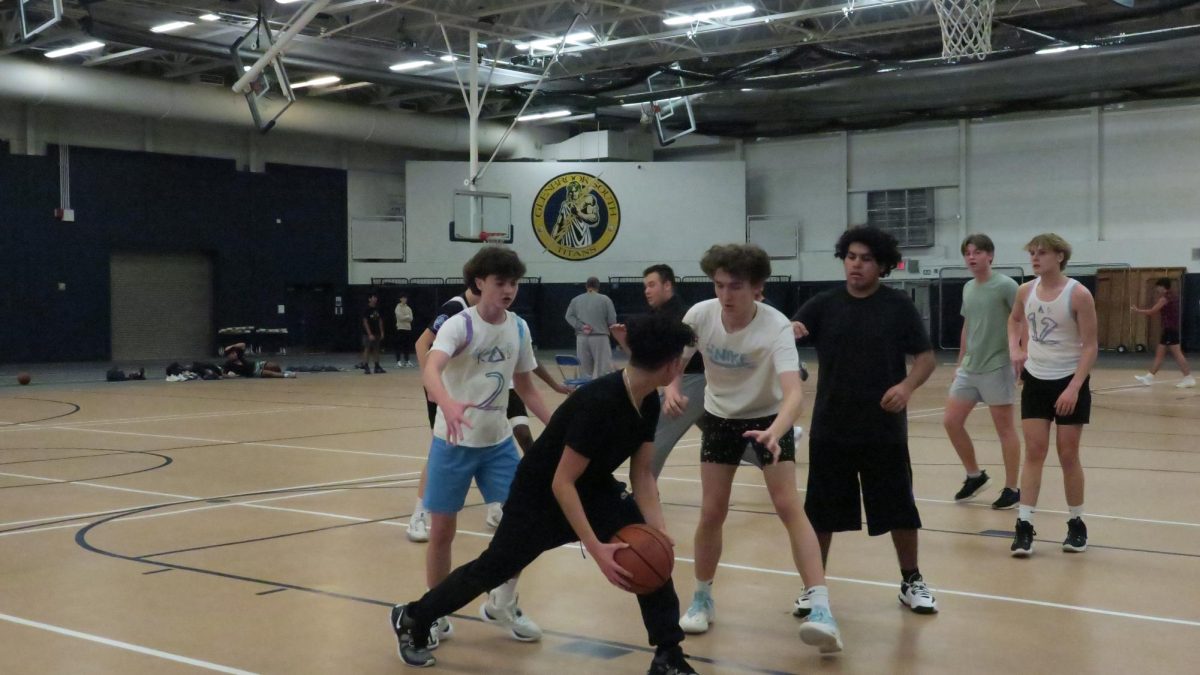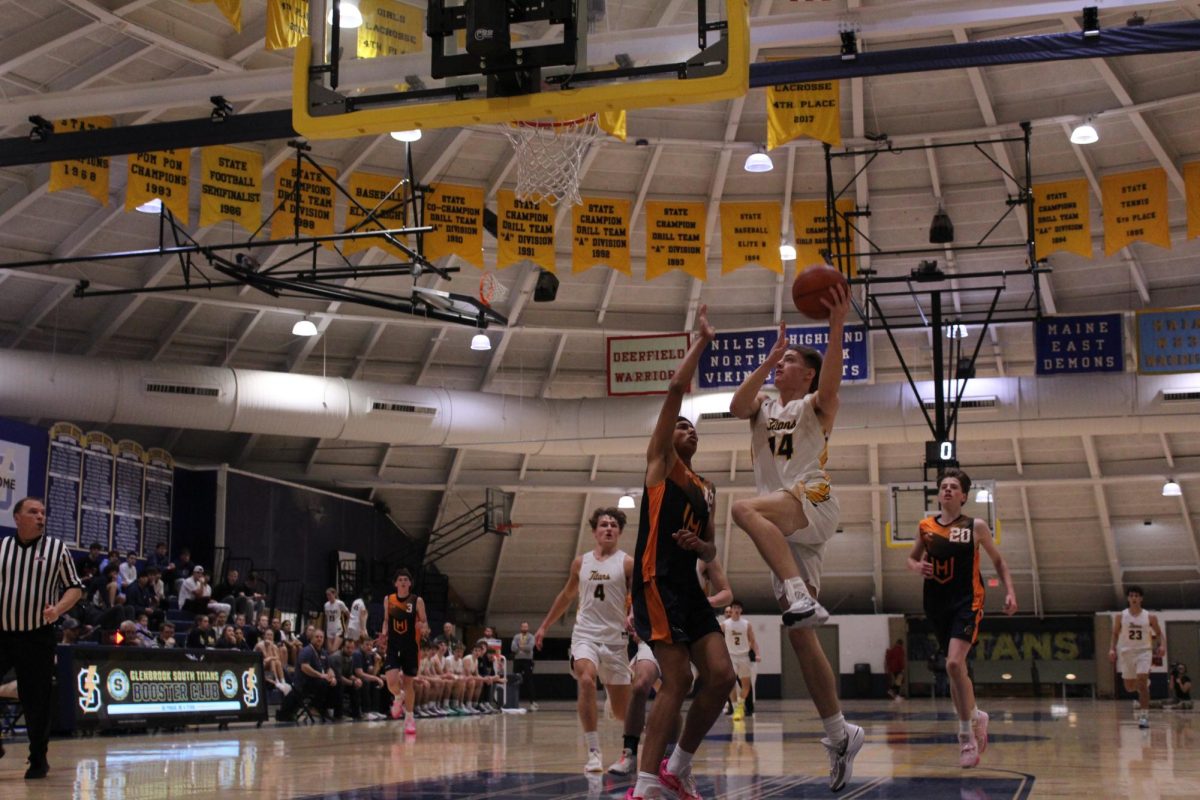Many American teenagers may hear the news and statistics coming from the Palestinian-Israeli conflict and not think twice about it. Over the summer, however, multiple South students participated in the Hands of Peace program, where they not only learned about the conflict in vivid detail, but also met teenagers from these warring countries whose daily lives are affected by the conflict.
According to handsofpeace.org, Hands of Peace is a program where a group of Jewish-Israelis, Palestinian Citizens of Israel and Palestinian teenagers come to Chicago for an 18-day dialogue-based experience. The teens come together in an interfaith environment, where participants are given the opportunity to learn more about each other and come to an understanding through personal encounters and experiences.
Amy Cohen, Hands of Peace program director, believes that the goals of the program are very achievable, and will have an effect on the future of this generation’s lives. These goals include creating a peaceful coexistence between teenagers from Palestine and Israel and training future leaders in the Middle East and in the United States in peace-building skills.
“We are inspiring future leaders of the world to see people as humans, not as enemies, and giving participants a unique perspective on the conflict,” Cohen said. “A lot of young adults […] who have been through the program are shaped by their experiences and are using those experiences every day.”
According to azdema.gov, the Arizona Department of Emergency and Military Affair’s official website, the cause of the Palestinian-Israeli Conflict stems from the ongoing dispute over the claim of land on the south east bank of the Mediterranean Sea. In response to a surge of anti-Semitic feelings in Europe around the late 19th century, Jewish leaders and people sought for an establishment of a Jewish Nation-State in Palestine so they could find sanctuary.
In 1916, an agreement was made between the British War Cabinet and Zionist leaders (those that believed that the Jews should have their own nation), that promised the Jews a “national home” in return for their efforts in allying the United States with Great Britain for World War I.
Tensions between Arab and Jewish groups in this region increased, causing numerous riots and massacres to occur over the area. The conflict continues today, with both sides having very different views and opinions on each major event that has happened and the people involved.
Junior Grace O’Malley, a 2014 Hands of Peace participant, became close with people from both sides of the conflict and was aware of the preexisting opinions that each side had for each other.
“The Palestinians think of the Israelis as horrible, mean soldiers, and the Israelis think of the Palestinians as terrorists, and that’s because each of their governments tell them that’s what they are,” O’Malley said. “They see these things and they don’t know for real what [is happening] because people in power just want their power, and they don’t tell them the truth. When they come together and talk about their differences […], it becomes more peaceful between them.”
Junior Tori Lothian heard about the program from her youth group and her Western Religions class, and decided it was something she wanted to participate in. After Lothian decided to join the program, her understanding of the Palestinian-Israeli conflict became clearer and the program became much more than just ‘something to do’ over the summer.
“I feel that the goal of this program was really inspiring to me because I heard so much about the conflict,” Lothian said. “I think it’s a terrible situation because both sides are losing, and both sides are fighting and […] it’s not helping anyone; it’s just a cycle of revenge.”
O’Malley knew that the preexisting prejudices of the teens would be brought to the program, and she was worried over the hostility that could exist between the incoming teenagers.
“I was worried that they were just going to blame each other and blame each other and just never come to agreement,” O’Malley said. “There was a lot of blaming the first couple of days, but they eventually started to learn and understand each other.”
Senior Dana Grad, a 2014 Hands of Peace participant and daughter of one of the three co-founders of the program, is an expert when it comes to Hands of Peace. She has been a part of the program since she was 6 years old, and is accustomed to the daily happenings and orchestrations of the program.
“Argument[s] break out every day, but the good thing is we have faculty to mediate the discussions,” Grad said. “It’s almost a good thing in my opinion when there are arguments because most of the time I feel like […] they don’t let their true emotions and political beliefs show as much, so I feel like it’s a huge breakthrough when they do get to that more heated discussion, because it’s really raw and real.”
Grad goes on to explain the array of emotions that are brought forth during the program’s daily two-hour dialogue session.
“Yelling happens during dialogue, crying happens, hugging happens,” Grad said. “It gives them an opportunity to talk to the other side when they never would have had that opportunity before. Some of the Palestinians have never talked to the Israelis before, and some of the Israelis have never talked to the Palestinians before. I think that’s really important because they have no idea what it’s like [for the other side].”
The first day of the program where the teenagers get to meet each other for the first time was highly anticipated and a little bit uncomfortable, according to Lothian.
“It was kind of […] awkward, but in some aspects, I’m like ‘wow these people [have] some heavy baggage,’” Lothian said. “It’s just weird to start off with ‘What’s your favorite color?’ when in reality I want to talk to them about how their lives are. […] I think that’s crazy that they’re living in such a war zone, but they’re still these normal teenagers that have favorite colors too.”
O’Malley explained the transition of the teenagers’ relationships from the beginning of the program to the end was rocky, but rewarding.
“It’s just amazing how you could see the relationship going from not wanting anything to do with each other to becoming best friends,” O’Malley said. “When [you] see them […] having a conversation about normal things that teenagers talk about, you just smile, and you’re so happy that they’re finally seeing each other eye to eye. […] They’re putting the conflict behind them and trying to see this person as a person, instead of a Palestinian or an Israeli or an American.”
The daily dialogue session is filled with emotions, arguments and shockingly real stories, according to Grad.
“There was a heated discussion between an Israeli boy and a Palestinian girl about him joining the Israeli Defense Force and what that meant [for her],” Grad said. “There is the potential that he could get orders to kill Palestinians, and that could possibly be her and she could be at a checkpoint one day. […] That was just an incredibly powerful moment because it [felt] so unreal.”
According to Lothian, this was not the only time that the Israelis and the Palestinians did not agree with each other. Their previous prejudices before starting the program affected the daily discussions.
“One thing that they tended to do was like talk about the numbers of dead people,” Lothian said. “They would be like ‘Oh, but we have more dead people, and you have less’ and I think that ended by the end of the program. They noticed that a death is a death, no matter which side it is on.”
Through the resources of the program, the teens were able to come to a better understanding of each other and form powerful friendships, according to Cohen.
“The past couple years, the program has been during Ramadan and the [other participants] decided […] to fast at least one day along with the Muslim students who were fasting,” Cohen said. “To see that teens who have always thought of each other as ‘the other side’ are now choosing to do something difficult to support their new friends is truly remarkable.”
According to O’Malley, hearing the personal stories from the Israeli and Palestinian teenagers helped her come to a better understating of the conflict happening in the teenagers’ home countries.
“It didn’t make sense until I heard it from the point of view of the Israelis [and] the Palestinians,” O’Malley said. “It was just a bunch of information, and then listening to them helped me piece it all together and make sense of it.”
O’Malley now sees the Palestinian-Israeli conflict in a much different light. The conflict is much more personal to her now that she has come into contact with so many people whose daily lives are affected by the battle.
“It’s really scary because I got so close to these people that they’re not like my friends anymore, they’re like my family,” O’Malley said. “So it’s like having a family member there, and it’s extremely personal when you hear these stories and news [that] you don’t know if you should believe or not. Because it could not be real, or it could be really real, or it could be even worse than what they’re saying; so it’s very confusing and scary, but I always hope for the best.”
For more information on the Palestinian-Israeli conflict or the Hands of Peace program, visit handsofpeace.org. Sign up for next year’s program by clicking on the “Applications” tab on the website.





